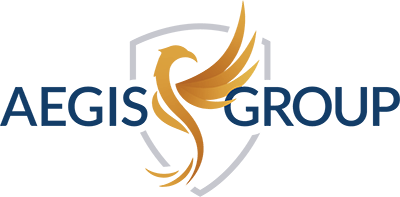Every hospital, clinic, and private medical practice faces one universal challenge: managing risk. From medical errors and data breaches to workplace injuries and regulatory violations, healthcare organizations operate in one of the most highly regulated and high-stakes industries in the world. That’s why a strong healthcare risk management program is essential—not only for protecting patients but also for safeguarding an organization’s financial health and reputation.
In this comprehensive guide, we’ll explore what healthcare risk management is, why it’s critical for hospitals and medical practices, and how the right insurance solutions can help reduce liability exposure. We’ll also look at practical strategies, tools, and coverage types that modern healthcare organizations can use to strengthen their risk resilience.
What Is Healthcare Risk Management?
Healthcare risk management is the process of identifying, assessing, and mitigating risks that could negatively impact patients, employees, or the healthcare organization itself. These risks include medical malpractice, regulatory penalties, cyber threats, and property damage.
Effective risk management programs combine preventive policies, employee training, data analytics, and insurance coverage to minimize exposure and ensure compliance with healthcare regulations such as HIPAA, OSHA, and CMS guidelines.
At its core, healthcare risk management aims to protect three things:
- Patients – by ensuring safety and quality care
- Staff – by preventing workplace injuries and burnout
- Organizations – by reducing financial and legal liabilities
Why Healthcare Risk Management Matters
Healthcare organizations face increasing scrutiny from regulators, insurers, and patients. A single incident—like a data breach or surgical error—can lead to lawsuits, reputational damage, and significant financial loss.
According to the American Medical Association (AMA), nearly one-third of physicians have been sued at least once by the age of 55. Even for smaller practices, a single claim can threaten financial stability.
Risk management helps mitigate these challenges by implementing proactive systems that detect potential issues early, establish clear protocols, and ensure adequate insurance protection.
Common Risks Faced by Healthcare Organizations
| Category | Examples | Potential Impact |
|---|---|---|
| Clinical Risk | Misdiagnosis, medication errors, delayed treatment | Patient injury, malpractice claims |
| Operational Risk | Equipment failure, power outages | Service disruption, patient safety issues |
| Regulatory Risk | HIPAA violations, OSHA noncompliance | Fines, penalties, license suspension |
| Cyber Risk | Data breaches, ransomware attacks | Loss of patient trust, legal penalties |
| Employee Risk | Injury, harassment claims, burnout | Workers’ comp costs, reduced morale |
Key Components of an Effective Healthcare Risk Management Program
1. Risk Identification
Hospitals and clinics must continually assess internal and external risks through audits, incident reports, and safety evaluations. Common tools include root cause analysis (RCA) and failure mode effects analysis (FMEA).
2. Risk Analysis and Evaluation
Each identified risk should be assessed based on its likelihood and potential impact. This helps prioritize which risks require immediate attention versus long-term monitoring.
3. Risk Control and Mitigation
Control measures—such as staff training, improved communication systems, and safety checklists—reduce the probability or severity of adverse events.
4. Risk Financing and Insurance
Even with best practices, some incidents are unavoidable. That’s where insurance coverage plays a vital role in transferring financial risk.
5. Continuous Monitoring and Improvement
Risk management isn’t static. Regular performance reviews, claims analysis, and compliance audits keep your program effective as regulations evolve.
Insurance Solutions for Healthcare Risk Management
Insurance acts as the financial backbone of a healthcare risk management plan. The right coverage minimizes exposure and protects against costly claims. Here are the essential types of healthcare insurance policies every organization should consider:
1. Medical Malpractice Insurance
Protects healthcare professionals and institutions from negligence claims. It covers legal defense, settlements, and judgments related to patient care errors.
2. General Liability Insurance
Covers third-party bodily injury and property damage occurring on hospital or clinic premises. It’s crucial for outpatient centers and private practices.
3. Professional Liability Insurance
Similar to malpractice coverage, but often used by administrative and consulting staff in healthcare settings—covering non-clinical professional errors.
4. Cyber Liability Insurance
With healthcare data breaches on the rise, cyber coverage protects against costs tied to ransomware, data restoration, and breach notification requirements.
5. Workers’ Compensation
Provides benefits to healthcare workers injured or made ill on the job. This is particularly important for nurses, technicians, and lab employees exposed to physical or chemical hazards.
6. Directors and Officers (D&O) Liability Insurance
Protects executives and board members from lawsuits alleging mismanagement or fiduciary breaches.
For more specialized coverage options, explore Aegis Healthcare Risk Management or connect with the Aegis Insurance team for expert consultation.
How to Implement an Effective Risk Management Strategy
Developing a comprehensive program involves both operational and cultural changes. Here’s how healthcare leaders can begin building a safer, more compliant organization:
- Conduct a baseline risk assessment: Identify your current exposure across clinical, cyber, and administrative domains.
- Train staff regularly: Continuous education reinforces compliance and accountability.
- Leverage technology: Use electronic incident reporting and real-time analytics to track and mitigate risk.
- Review contracts and vendors: Ensure third parties also maintain adequate liability coverage.
- Engage insurance partners: Collaborate with experts like Aegis Insurance to tailor solutions to your facility’s specific needs.
Comparing Traditional vs. Modern Risk Management Models
| Aspect | Traditional Model | Modern Model |
|---|---|---|
| Focus | Reactive (post-incident) | Proactive and data-driven |
| Tools | Paper-based reporting | Digital analytics and automation |
| Responsibility | Compliance departments | Organization-wide involvement |
| Insurance Role | Claim reimbursement | Integrated risk prevention strategy |
External Resources for Healthcare Risk Management
- Agency for Healthcare Research and Quality (AHRQ) – Tools for patient safety and healthcare quality improvement.
- U.S. Department of Health and Human Services (HHS) – HIPAA and compliance guidelines.
- Occupational Safety and Health Administration (OSHA) – Standards for healthcare worker safety.
FAQs: Healthcare Risk Management and Liability Protection
What is the goal of healthcare risk management?
To identify, prevent, and reduce risks that threaten patient safety, staff wellbeing, or the organization’s financial stability.
Is medical malpractice insurance the same as healthcare risk management?
No. Malpractice insurance is one component of risk management, which also includes prevention, training, and compliance initiatives.
How can small medical practices manage risk effectively?
By partnering with an experienced insurance advisor, conducting regular audits, and maintaining strong safety protocols.
Why is cyber liability insurance important for healthcare?
Healthcare data is highly targeted by cybercriminals. Cyber insurance helps cover recovery costs and legal liabilities after a breach.
Who oversees healthcare risk management in a hospital?
Typically, a Risk Manager or Chief Compliance Officer, supported by medical staff, administrators, and insurers.
Conclusion
Healthcare risk management isn’t just about preventing lawsuits—it’s about protecting lives, reputations, and the future of your organization. A proactive approach that blends compliance, technology, and tailored insurance solutions can dramatically reduce exposure and enhance operational resilience.
From malpractice and cyber threats to employee safety, every risk can be managed effectively with proper planning and partnership. To learn more about healthcare liability coverage and risk management strategies, visit Aegis Healthcare Risk Management or contact Aegis Insurance today for a custom consultation.

